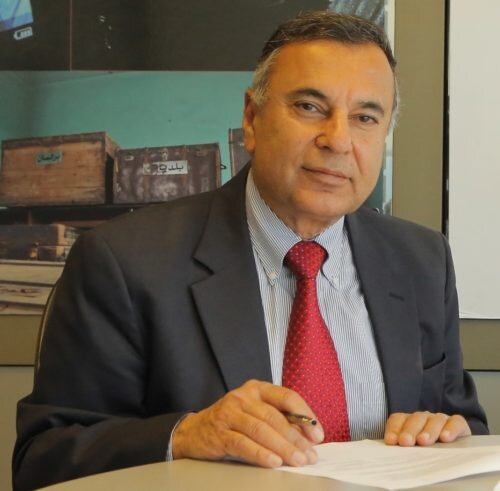Ex-Lebanese diplomat rules out military clash with Israel over disputed maritime border

TEHRAN - A former Lebanese ambassador to Chile, Poland, and Canada rules out a military clash between Lebanon and Israel over the Karish field in Mediterranean .
“First and foremost, Lebanon needs to jumpstart the negotiations for the Karish field with a request to the U.S. to pressure the Israelis to cease drilling until an agreement on the maritime borders is reached,” Massoud Maalouf tells the Tehran Times.
“Secondly, Lebanon can enlist the assistance of the UN, the European Union and other international bodies in promoting a resolution to the negotiations,” Maalouf said.
“It is my personal hope that this Israeli aggression on Lebanon’s maritime wealth in the Karish field will encourage all Lebanese parties and factions to establish a united front.” The former diplomat advises Lebanon to start drilling in the Karish field.
“Militarily, I do not think that a war between Israel and Lebanon over this maritime border issue is a current consideration nor in the best interest of either country,” Maalouf emphasizes.
Following is the text of the interview:
Q: Could you update us about the disputes between Lebanon and Israel over maritime borders and what Lebanon’s Mikati calls “encroaching on Lebanon’s maritime wealth”.
A: Although the land border between Lebanon and Israel has been delineated despite some reservations on the part of Lebanon, the maritime border remains under negotiation. Amos Hochstein, the Senior Advisor for Energy Security at the U.S. Department of State, is the current mediator between the two countries for this maritime area, known as the Karish field and known for its gas and petroleum reserves.
Recently, a ship belonging to the London-based ENERGEAN company arrived in the disputed area to start drilling gas for Israel. General Michel Aoun, the President of Lebanon, said that “any action or activity in the disputed area represents a provocation and an aggressive action.” At the same time, Lebanese Prime Minister Nagib Mikati said that Israel was “encroaching on Lebanon’s wealth”. Lebanon considers that part of the disputed area belongs to its economic zone while Israel considers that this whole field is in its exclusive economic zone.
Q: How do you evaluate the talks between Lebanon and Israel over the disputed area? Are there direct talks or mediators are involved?
A: The indirect talks to delineate the maritime border between Lebanon and Israel started more than two decades ago. There have been no direct talks between the two sides which have presented their respective maps to the American mediators. The Lebanese Foreign Minister declared recently that Mr. Hochstein has not been active enough in negotiations, especially since he has not been in Lebanon lately to be updated on the Lebanese response to the Israeli position. Lebanon has now requested the U.S. administration to dispatch Mr. Hochstein to Beirut to restart the negotiating process.
Q: Do you think Lebanon possesses sufficient leverages, diplomatically and militarily, to restore its right when it comes to Israeli provocations?
A: First and foremost, Lebanon needs to jumpstart the negotiations for the Karish field with a request to the U.S. to pressure the Israelis to cease drilling until an agreement on the maritime borders is reached.
Secondly, Lebanon can enlist the assistance of the UN, the European Union and other international bodies in promoting a resolution to the negotiations.
Thirdly, Lebanon could start drilling in the Karish field.
Militarily, I do not think that a war between Israel and Lebanon over this maritime border issue is a current consideration nor in the best interest of either country.
Q: Do you expect Hezbollah to get involved in the dispute? I mean military action to Israel’s moves.
A: I personally believe that Hezbollah is in a difficult situation, especially after the May 15, 2022, Lebanese parliamentary elections. Any military action by Hezbollah against Israel risks a strong Israeli response that may weaken the Party of God by destroying its military capabilities and the civilian infrastructure in Lebanon. Voices in Lebanon are increasingly focused on calling for the disarmament of Hezbollah and supporting the Lebanese Army to protect Lebanon from Israeli aggression. Hezbollah stands to receive significant backlash from any war initiative as the destructive results of the 2006 war with Israel is still fresh in the memory of most Lebanese. Although Hezbollah is capable of hitting Israel with its rockets in the south causing some damage and casualties, it cannot win an all-out war. In any respect, Hezbollah has officially declared that it supports the Lebanese government’s decision on this issue, whether through negotiations or through military action.
In conclusion, it is my personal hope that this Israeli aggression on Lebanon’s maritime wealth in the Karish field will encourage all Lebanese parties and factions to establish a united front. Lebanon’s overall precarious situation will not withstand continued divisions.
